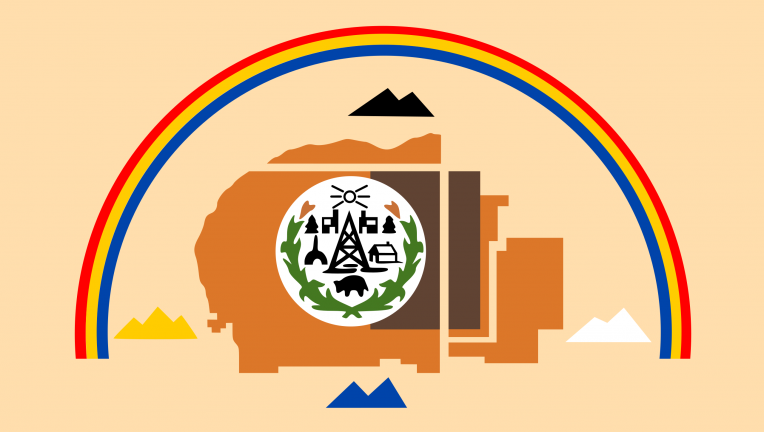Navajo Nation extends stay-at-home order, lifts weekend lockdowns

Navajo Nation flag
WINDOW ROCK, Ariz. - The Navajo Nation has extended its stay-at-home order but is lifting weekend lockdowns amid the coronavirus pandemic.
Navajo Nation President Jonathan Nez said in a news release that beginning Monday, January 25, residents will be required to stay home 24 hours a day, with the exception of essential workers, or anyone who needs to get food or medicine. All residents are required to wear a mask while in public places.
The stay-at-home order will last through at least Feb. 15.
An overnight curfew from 9 p.m. to 5 a.m. will also be in effect.
Nez says weekend lockdowns are being lifted to allow for more vaccination events.
"By lifting the 57-hour weekend lockdown, our health care facilities on the Navajo Nation will be able to administer more COVID-19 vaccines on the weekends," Nez said in a statement.
Navajo Nation health officials on Jan. 21 reported 166 new COVID-19 cases and seven more deaths.
The latest figures bring the total reported coronavirus cases on the reservation to 26,782 with 940 known deaths.
The Navajo Department of Health has identified 75 communities with uncontrolled spread of COVID-19 from Jan. 1-14.
The five newest communities added to the list were Bread Springs, Hard Rock, Jeesto, Cove, and Mexican Springs.
The number of infections is thought to be higher than reported because many people haven’t been tested.
Studies suggest people can be infected with the virus without feeling sick.
Tribal officials said more than 226,000 people on the vast reservation have been tested for COVID-19 and nearly 14,000 have recovered.
The Navajo Nation extends into Arizona, New Mexico and Utah.
The Associated Press contributed to this report.
In order to protect yourself from a possible infection, the CDC recommends:
- Avoid close contact with people who are sick.
- Avoid touching your eyes, nose, and mouth.
- Stay home when you are sick.
- Cover your cough or sneeze with a tissue, then throw the tissue in the trash.
- Clean and disinfect frequently touched objects and surfaces using a regular household cleaning spray or wipe.
- Cover your mouth and nose with a cloth face cover when around others
- Wash your hands often with soap and water for at least 20 seconds, especially after going to the bathroom; before eating; and after blowing your nose, coughing, or sneezing.
- Monitor your health daily
MAP: Worldwide interactive Coronavirus case data
MAP: Arizona Coronavirus cases by zip code
FULL COVERAGE: fox10phoenix.com/coronavirus
CDC: How coronavirus spreads, symptoms, prevention, treatment, FAQ
Arizona COVID-19 resources, FAQ: azdhs.gov/coronavirus
On CoronavirusNOW.com, you'll find extensive coverage about COVID-19, including breaking news from around the country, exclusive interviews with health officials, and informative content from a variety of public health resources.
Symptoms for coronavirus COVID-19 include fever, coughing, and shortness of breath. These, of course, are similar to the common cold and flu.
Expect a common cold to start out with a sore or scratchy throat, cough, runny and/or stuffy nose. Flu symptoms are more intense and usually come on suddenly, and can include a high fever.
Symptoms of COVID-19 may appear more slowly. They usually include fever, a dry cough and noticeable shortness of breath, according to the World Health Organization. A minority of cases develop pneumonia, and the disease is especially worrisome for the elderly and those with other medical problems such as high blood pressure, obesity, diabetes or heart conditions.
RELATED: Is it the flu, a cold or COVID-19? Different viruses present similar symptoms
To protect yourself, wash your hands well and often, keep them away from your face, and avoid crowds and standing close to people.
And if you do find yourself showing any of these flu or coronavirus symptoms - don't go straight to your doctor's office. That just risks making more people sick, officials urge. Call ahead, and ask if you need to be seen and where.
Related stories
Featured
Navajo Nation President: 80% of its allocated COVID-19 vaccine doses have been administered
Officials with the Navajo Nation say they are looking for more vaccines to protect their people against COVID-19. So far, they have administered 80% of the 26,000 doses they have received.
Featured
Navajo Nation casinos lay off more than 1,100 amid COVID-19 closures
The tribe’s Navajo Nation Gaming Enterprise said they had to move ahead with the layoffs because of lack of revenue caused by the closures.
Featured
As COVID-19 vaccines begin to arrive, Navajo Nation President urges residents to not let their guard down
The Native American nation, which occupies a portion of Arizona and New Mexico, has been hard hit by the COVID-19 pandemic.
Get breaking news alerts in the FREE FOX 10 News app. Download for Apple iOS or Android.





